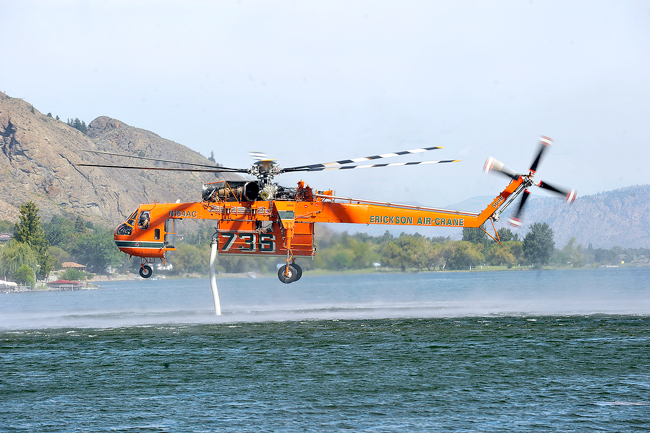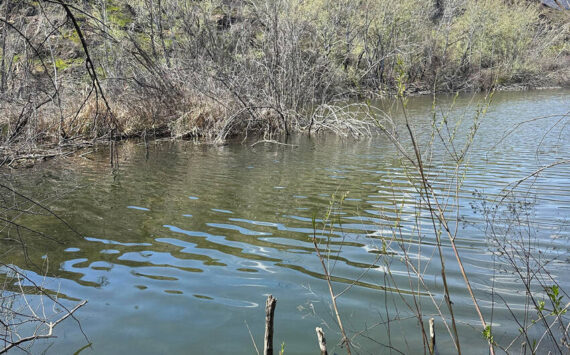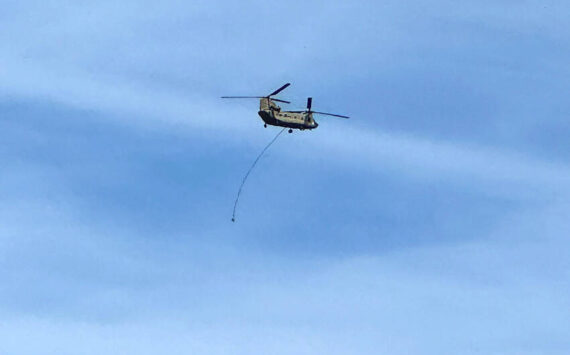
PNT hiker, hunkers down during storm, runs into fire near Summit Lake
OROVILLE – Tonasket Ranger District’s firefighters continue to respond to fires caused by last Sunday night’s lightning, including the Wildhorse Fire on Mt. Hull which grew to 185 acres by Monday evening.
Firefighters responded to a fire in the Summit Lake area on Mt Hull. Firefighters, supported by both fixed wing aircraft and helicopters, were able to construct about 2,000 feet of fireline. The fire was staffed overnight Monday and more crews arrived to assist Tuesday.
A total of six crews, four of them hotshot crews, are working on the Wildhorse Fire. The fire is on National Forest Land and the north edge is about two miles inside the National Forest boundary and is burning in timber and grass, in difficult rocky terrain on lands managed by the Tonasket Ranger District of the Okanogan-Wenatchee National Forest. The fire is west/northwest of Summit Lake.
Whistler Canyon Trail and those portions of the Pacific Northwest Trail (PNT) on National Forest lands within Township 40N and Range 27 and 28E are closed for public and firefighter safety.
“Almost 150 lightning strikes blanketed the area east of Tonasket, within Okanogan County. Firefighters have successfully contained seven of the fires reported Monday and will keep them in patrol status,” writes Shannon O’Brien, with the Okanogan-Wenatchee National Forrest. Six of the fires detected Monday remained staffed Tuesday. Each of the 13 fires are small, most of them are less than one acre in size.

Ashley Hill, who was hiking the Pacific Northwest Trail said she saw the storm coming and set up shelter about 17 miles from Summit Lake.
“It was a wild experience, I’ve never seen a bigger storm, I counted 100 lightning strikes and the thunder was a constant roar,” said Hill, 30, from San Jose, Calif. “I slept with my shoes on, which I never do, just in case I smelled smoke and had to run out of there.”
She said she got up early the next morning and it was a beautiful day.
“There wasn’t a cloud in the sky I hiked about 17 miles and that’s when I hit the fire crew, they said I couldn’t go through because there was fire burning on both sides of the trail. I watched two helicopters getting water from Summit Lake and they gave me a ride to a place where I could turn around and hike out… it added about 10 miles to the hike,” she said.
Hill, who has been doing the PNT on her own, met a member of the local Eagles club and they brought her to the Camaray Motel where she spent the night.
“I wanted some time to do some writing, especially to let the group behind me know about the fire and that it looks like the trail is closed in that area,” said Hill, who has a small laptop she uses to get emails and to check the PNT website.
Here last touch with civilization before hitting Oroville had been at Bonaparte. She says she has planned an alternate route to avoid areas of the Pasayten Wilderness that have been affected by the Newby Lake Fire burning west of the Okanogan Valley.
Temperatures are down about ten degrees from yesterday and relative humidity levels are up about five percent, according to USFS’ O’Brien.
New fires associated with the lightning storm continue to be reported as of press time Tuesday. The Tonasket Ranger District has brought in additional resources to assist in responding. To report a fire, call 911.








